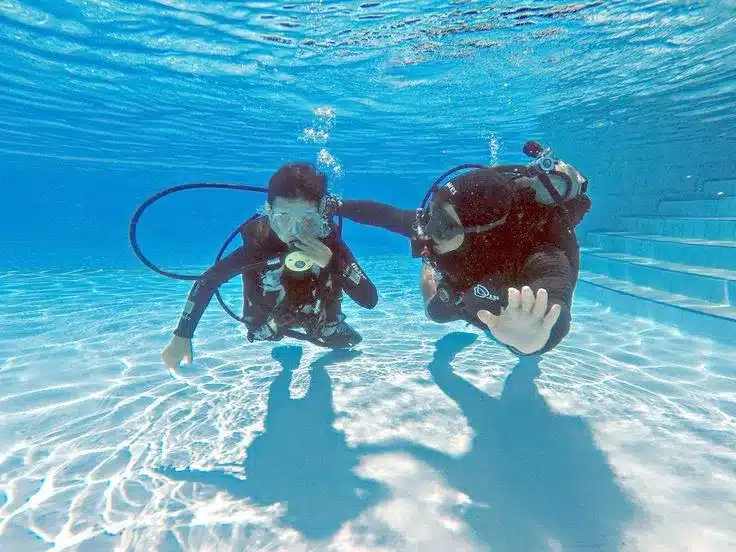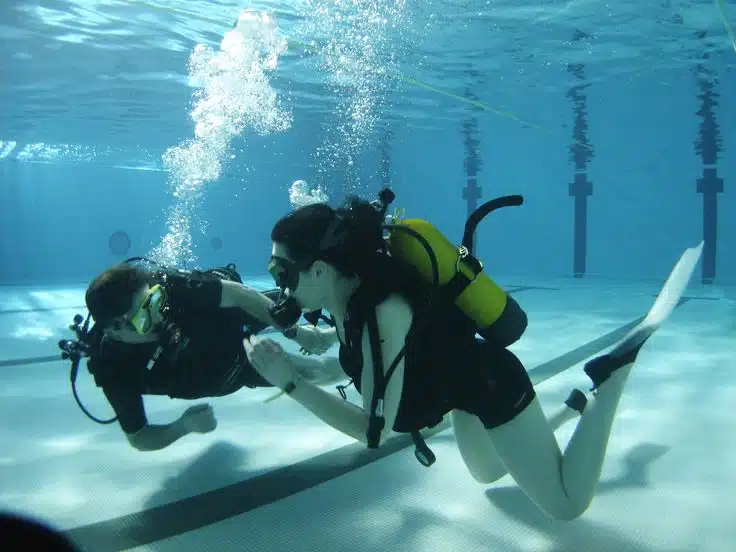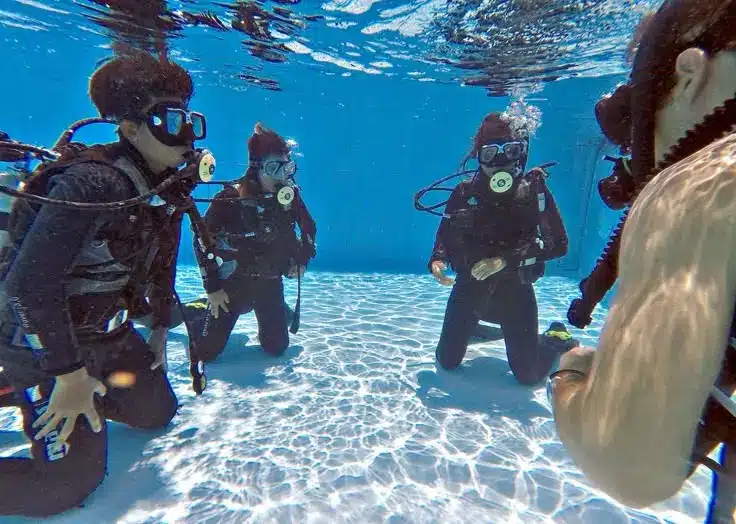Blog
Scuba Diving for Beginners: Your First Lesson Underwater
Scuba diving is one of the most captivating ways to explore the underwater world. Whether you dream of gliding alongside sea turtles over vibrant coral reefs or you’re eager to embark on deep-sea adventures, mastering the basics is the essential first step in your journey into the blue.
In this beginner’s guide, we’ll cover what scuba diving is, the core skills new divers need to learn, and how portable scuba gear can help you start diving safely, confidently, and with minimal equipment.
What Is Scuba Diving?
Scuba diving allows you to breathe compressed air and move freely underwater using a self-contained breathing apparatus. Unlike snorkeling, scuba diving lets you stay submerged longer and dive deeper, offering a more immersive look at marine life.
Thanks to the increasing availability of compact, portable dive systems—such as lightweight air tanks and simplified breathing regulators—even first-time divers can now experience the underwater world without bulky or complex equipment. These systems are ideal for short recreational dives, shallow-water training, or underwater photography.
How to Start: Certification or Intro Dive?
The most common and safest way to get started with scuba diving is by earning an Open Water Diver certification from internationally recognized organizations like PADI, SSI, or NAUI. Once certified, divers can explore depths up to 18 meters (60 feet) independently and are eligible for more advanced courses such as deep diving or enriched air diving.
If you’re not ready for full certification, many centers offer introductory dive experiences or confined water sessions, which are excellent ways to build confidence and learn essential skills in a controlled environment.

Top 3 Core Skills Every Beginner Should Know
1. Breathing Underwater: Slow, Deep, and Controlled
Your first breaths underwater might feel unfamiliar—but staying calm and breathing slowly is key to safety and enjoyment. Remember:
- Inhale and exhale slowly and steadily;
- Never hold your breath to prevent lung overexpansion injuries;
- If you feel anxious, focus on your breathing rhythm to relax.
2.Buoyancy Control: Mastering the Art of Neutral Buoyancy
Effective buoyancy control is essential for safe, efficient, and eco-friendly diving. With practice, you’ll learn to:
- Avoid touching or disturbing fragile marine ecosystems;
- Reduce fatigue and air consumption;
- Ascend and descend smoothly and safely.
Begin in shallow waters using lightweight gear to build your sensitivity to buoyancy changes—especially helpful when using streamlined, modular scuba setups.
3.Safety Principles: Dive Smart, Dive Safe
No matter how modern your gear is, these safety fundamentals always apply:
- Breathe properly at all times;
- Never dive alone—always dive with a buddy;
- Know your limits and understand the dive site;
- Ascend slowly—no faster than 18 meters (60 feet) per minute;
- Plan your dive, check your gear, and anticipate potential risks.
Gear Up: A Lightweight Start to Scuba Diving
Compared to traditional full scuba systems, SMACO S700 and other portable scuba gear offer a more accessible entry point for beginners. These compact tools are particularly well-suited for short underwater experiences, self-guided practice, or capturing underwater footage.

Recommended Starter Setup:
- Mini Scuba Tank: Ideal for 15–20 minutes of underwater time; compact and easy to carry.
- Portable Air Pump: Enables fast refills at home or outdoors, boosting convenience and efficiency.
- Essential Accessories Kit: Includes a diving mask, snorkel, waterproof pouch, and more—perfect for day trips or travel.
Thanks to modular design, new divers can customize their setup to fit personal needs and comfort, lowering the learning curve and enhancing safety.
Conclusion: Your First Breath Below the Surface
Scuba diving is more than a sport—it’s a sensory journey into a world unlike any other. Whether you’re marveling at vibrant coral reefs or enjoying the meditative rhythm of underwater breathing, diving brings a profound sense of freedom and connection to nature.
Choose gear that fits your goals, follow proven techniques, and take your first dive with confidence. Between you and the ocean lies just one deep breath.
